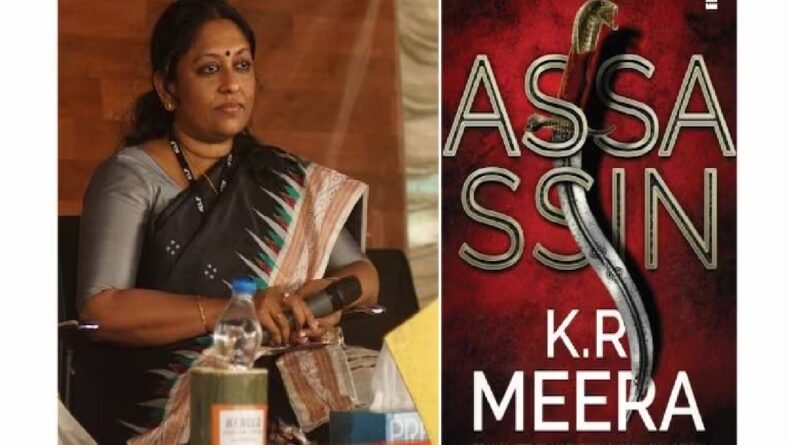Book review: KR Meera’s Assassin hooks you with many questions, no straight answers
An English translation of KR Meera’s Malayalam novel Ghathakan, Assassin’s meandering narrative balances introspection, suspense and social critique.
Have you ever read a book that made you want to fling it out the top floor of a skyscraper because of its never-ending twists and turns and scalding betrayals and then made you jump after it so you could read it again? A pity if your answer is no! Because then you haven’t read K.R. Meera’s Assassin (English translation by J. Devika).
The book opens with – “Have you ever faced an attempt on your life? A pity if your answer is no! If only because the soul experiences a tremendous release in that moment. Instantly body and soul part ways…”
Invoking Gauri Lankesh’s murder in the first chapter, the book’s protagonist, Satryapriya, is shot. She lives. She sets off to investigate her assassin, facing more murder attempts, recognizing past events as failed murder attempts, discovering her sister Sivapriya didn’t die accidentally and was murdered. Her father, the third S in her life, was stabbed multiple times with an S shaped dagger. The sins of the father do catch up. Does she find the murderer? While you follow the compelling “investigation” with suspense, fear and excitement, you realize it doesn’t matter. You will follow author K.R. Meera wherever she leads you. What you will not get and will learn to stop expecting is a neat resolution. Does the world always make sense? Does the relationship between power and cruelty make sense? Do all murders have one murderer?
The book peppers you with questions: “Have you ever been shot at?” “Have you entered a dead person’s room alone?” The sense of unease, disturbance and melancholy grows with the narrative. The questions turn to “Have you ever shat and pissed yourself? After infancy? In the presence of strangers? “Has your lover sold you to a man old enough to be your father for defaulting on interest payments?” Later: “Have you ever imagined your life as a path, walked back on it, to the crossroad where the path you currently chose starts? Have you lingered there and sighed?” “Have you ever experienced yourself carrying within yourself a rapidly growing tree?” Each time you are told it is a pity if you have not, and why. Each of these incidents only underscore life’s breadth.
The book’s protagonist Satyapriya has done, felt, seen and experienced all of this and much more, making her who she is. Melodramatic yet pragmatic, foolish yet intelligent, courageous yet fearful, painfully dying and shedding her old self and birthing herself afresh, surviving a thousand assassinations. Satyapriya is matched, rather outmatched by her mother, who is not fazed by anything. Not her husband’s invalid status, his death, murder attempts. Not bankruptcy nor debts or demonetization. Her strength never wavers. In her author’s note, K.R. Meera notes that much of the mother’s quirkiness comes from her.
The book makes you squirm. Set around the time of demonetization, it probes power dynamics – who bears the power to invalidate or validate? Who suffers? The book is a commentary on Indian politics. It is a book about money, at the calculated impoverishment of the most desperate. It is a book about power and its relation to caste, wealth and gender. At one point the book suggests masculinity should be renamed power-li-nity. Many characters alternatively gain and lose wealth and their power over others changes. Their caste remains the same – indelible. It is a book about patriarchy. Its best parts are those dealing with human nature – never static and always layered. It explores the humanity in all of us – even the vilest among us. The book is also a thriller, deftly inserting hard unpleasant truths, between folds of engaging fiction.
One of the most anticipated releases of this year, Assassin is an English translation of the Malayalam novel Ghathakan by K.R. Meera. J. Devika’s translation is brilliant and preserves all the metaphors, similes, flourishes, ambiguity and sarcasm. Devika, an accomplished and award-winning translator, has translated many of K.R. Meera’s works, including her short stories and her Sahitya Akademi Award-winning Aarachar as Hangwoman in English. This familiarity makes the translations seem effortless, capturing turns of phrases and keeping the reader immersed in the narrative.
Through its meandering narrative “Assassin” entwines social critique, suspense and profound introspection leaving the reader thinking about the book for days.
Source: moneycontrol.com




